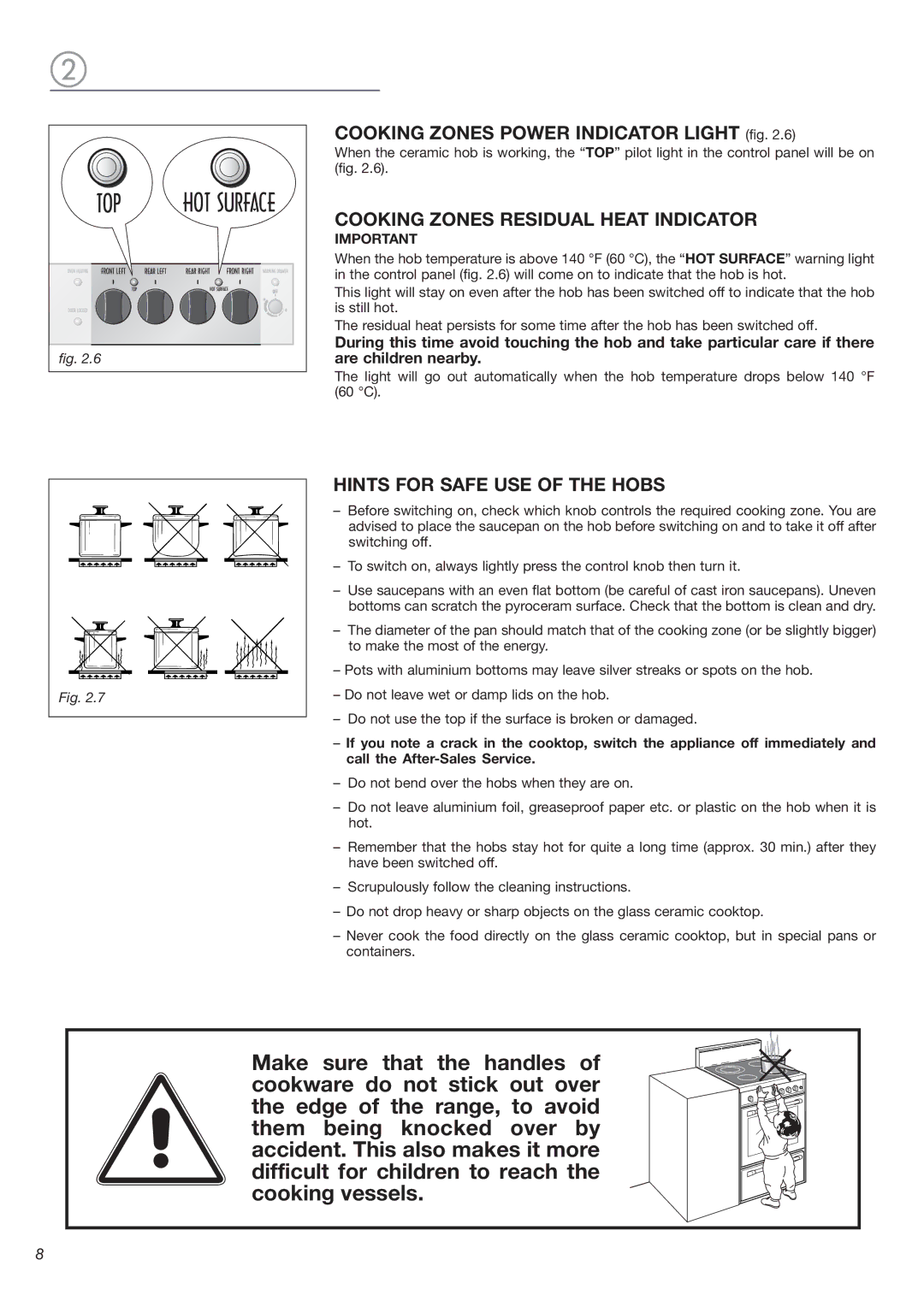
fig. 2.6 |
Fig. 2.7 |
COOKING ZONES POWER INDICATOR LIGHT (fig. 2.6)
When the ceramic hob is working, the “TOP” pilot light in the control panel will be on (fig. 2.6).
COOKING ZONES RESIDUAL HEAT INDICATOR
IMPORTANT
When the hob temperature is above 140 °F (60 °C), the “HOT SURFACE” warning light in the control panel (fig. 2.6) will come on to indicate that the hob is hot.
This light will stay on even after the hob has been switched off to indicate that the hob is still hot.
The residual heat persists for some time after the hob has been switched off.
During this time avoid touching the hob and take particular care if there are children nearby.
The light will go out automatically when the hob temperature drops below 140 °F (60 °C).
HINTS FOR SAFE USE OF THE HOBS
–Before switching on, check which knob controls the required cooking zone. You are advised to place the saucepan on the hob before switching on and to take it off after switching off.
–To switch on, always lightly press the control knob then turn it.
–Use saucepans with an even flat bottom (be careful of cast iron saucepans). Uneven bottoms can scratch the pyroceram surface. Check that the bottom is clean and dry.
–The diameter of the pan should match that of the cooking zone (or be slightly bigger) to make the most of the energy.
–Pots with aluminium bottoms may leave silver streaks or spots on the hob.
–Do not leave wet or damp lids on the hob.
–Do not use the top if the surface is broken or damaged.
–If you note a crack in the cooktop, switch the appliance off immediately and call the
–Do not bend over the hobs when they are on.
–Do not leave aluminium foil, greaseproof paper etc. or plastic on the hob when it is hot.
–Remember that the hobs stay hot for quite a long time (approx. 30 min.) after they have been switched off.
–Scrupulously follow the cleaning instructions.
–Do not drop heavy or sharp objects on the glass ceramic cooktop.
–Never cook the food directly on the glass ceramic cooktop, but in special pans or containers.
Make sure that the handles of cookware do not stick out over the edge of the range, to avoid them being knocked over by accident. This also makes it more difficult for children to reach the cooking vessels.
8
